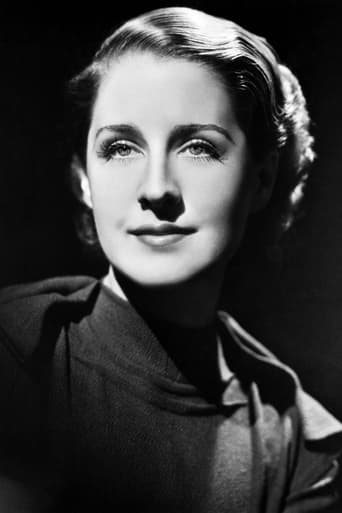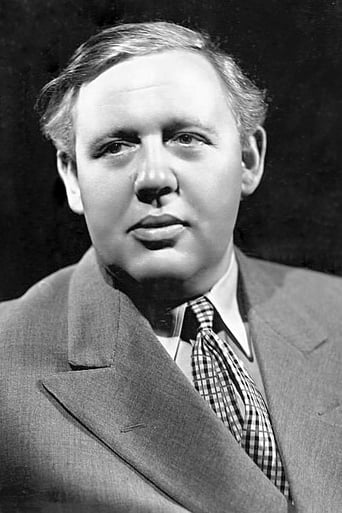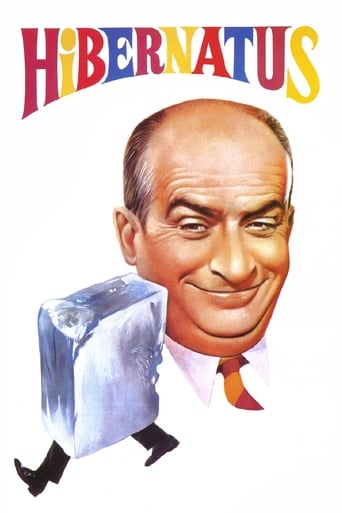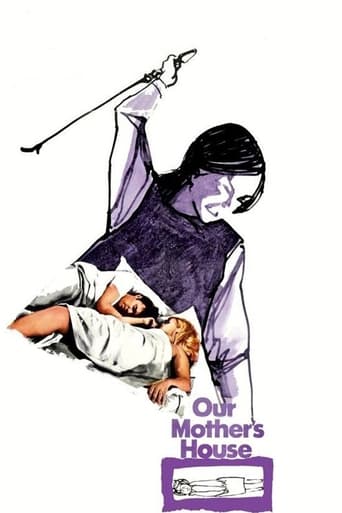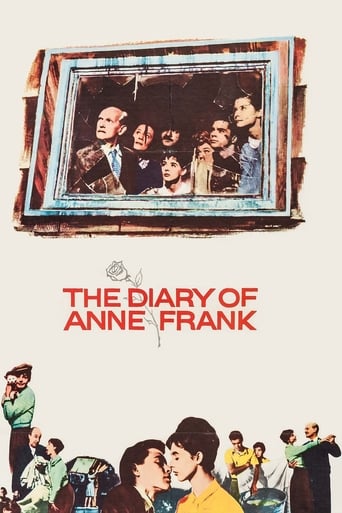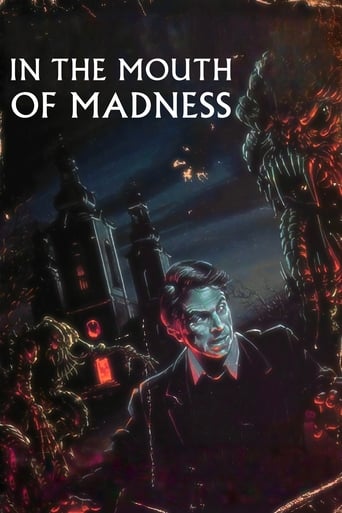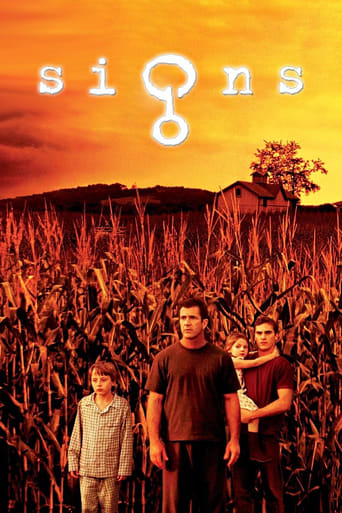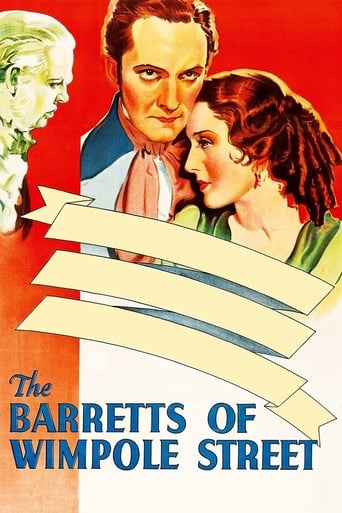
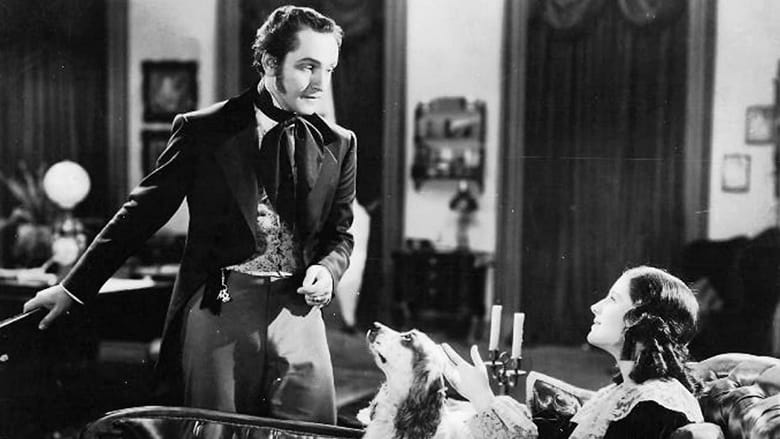
The Barretts of Wimpole Street (1934)
Remarkable poet Elizabeth Barrett is slowly recovering from a crippling illness with the help of her siblings, especially her youngest sister, Henrietta, but feels stifled by the domestic tyranny of her wealthy widowed father. When she meets fellow poet Robert Browning in a romantic first encounter, her heart belongs to him. However, her controlling father has no intention of allowing her out of his sight.
Watch Trailer
Cast


Similar titles
Reviews
A handsome costume drama given the famous MGM polish that stars Norma Shearer as sickly Elizabeth Barrett and Fredric March as famous poet Robert Browning whose wooing of Elizabeth gets her out of her sick bed and out from under the thumb of her domineering father (Charles Laughton).This is a pretty static film; almost the entire thing takes place in one room. But it's got good actors who know how to sell this kind of inconsequential romantic fluff, and Shearer in particular makes any movie more interesting just by being on the screen. She was one of the best actresses of the early sound period in my opinion, and though she's never mentioned with the likes of Bette Davis, Katharine Hepburn, Marlon Brando, and others who revolutionized screen acting, I think she deserves to be in her own way. She brought a naturalistic style to her acting that bridged the gap between the exaggerated mannerisms of the silents and the method acting that would hit the screen many years later. Margaret O'Sullivan is also a lot of fun as Shearer's feisty sister."The Barretts of Wimpole Street" received two Academy Award nominations in 1934: Outstanding Production and Best Actress for Shearer, her third of five ultimate career nominations and a record at the time.Grade: B+
The love story between Robert Browning and Elizabeth Barrett is legendary, and her 'Sonnets from the Portuguese' contains some of the beautiful love poetry ever written. They were both already established poets when they began corresponding, but she was an invalid, and had doubts and insecurities that he helped overcome with steady, persistent, genuine love. What I had forgotten about their story was how poorly her father behaved towards her and the rest of his children, and this movie really shows us that, in what appears to be a pretty accurate way.Charles Laughton is brilliant as the overbearing, controlling, overprotective, borderline incestuous Mr. Barrett, father of 12, whose wife had passed away, and whose own frustrations in love had led him to forbid his children to marry. He's hard to watch at times, but certainly gives the best performance, and the movie is probably more about his inability to let his children go – indeed, he disinherited each one who married – than it is about the extraordinary love between Robert and Elizabeth, though Frederic March and Norma Shearer do have some tender scenes. I enjoyed watching it, but I suppose that's the reason I didn't give a higher rating. How much better would it have been had they incorporated even more of their relationship, and some of their letters and poetry. The movie would be remade 23 years later by the same director, Sidney Franklin, and would be a great choice to be remade (with script changes) again today.
I'm not surprised that Warners took a long time to put this one on DVD, even though the movie was extremely popular in its day. Alas, it's now mainly of curiosity value as it comes across as a filmed stage play, an impression reinforced by the fact that there is only ONE reverse shot in the entire movie! With this single exception, it's like a filmed stage play except for the fact that it is a very, very wide stage, large enough to accommodate some non-dialog scenes such as the tracking shots in the park. As for the dialog itself, it is generally put across in long, static takes. Despite all, Charles Laughton does deliver a performance of some depth and subtlety, while Maureen O'Sullivan makes her Henrietta a spirited foil. Unfortunately, March's endeavors as Browning are facile and superficial. Norma Shearer, alas, is equally inadequate, while a simpering Katherine Alexander provides some extremely wearisome and dated comic relief.
I thought this would be a talky bore with bland characters and unimaginative cinematic techniques, but I was delightfully surprised! It's very nicely photographed and lavishly mounted, with vivid characters, dramatic coloring and dollops of humor. And the script even takes time to discuss actual poetry. Two representative elements that leap out at you: the sensitive performance of Una O'Connor as Elizabeth Barrett's devoted maid who appears to float across a room in her full-length dress and totally avoids hamming it up as she did (to hilarious effect) in THE INVISIBLE MAN the previous year. And the second is a superbly trained dog who takes his own walks around the neighborhood and scratches at the door when he comes home, to be let in by the servants. On the downside, although the viewer is led to view Norma Shearer's character as a homely recluse who hasn't left her chamber for years and can barely walk, Norma looks from moment one as if she just emerged from the Metro beauty salon (which of course is the case!). You'd think they might have tried a bit to make her look the part, even if only lightening the lipstick a shade or two, or perhaps a touch of shadow under the cheekbones, but no - she is as radiant, glamorous and robust as she ever was in anything. But histrionically this is one of her best efforts. She manages to convey exhaustion and weakness, and only very occasionally lapses into her wheezing, semi-coherent upper register when emotionally overwrought. (Helen Hayes would have been ideal casting for this part.) Charles Laughton as the old grouch of a father is in real life about Shearer's age but his jowly countenance - with the help of a powdered wig and sideburns - help him to look older. He is always riveting, as other viewers have commented, but he (or the script?) fail to convincingly knit the two sides of his personality together. Fredric March as Robert Browning is adequate, not particularly poetic, but dashingly attractive. Interestingly, he resembles Shearer so strongly (especially in profile) that HE could have played her father if his hair had been powdered. And in real life he is two years older than Laughton! But why quibble - this is one of the more entertaining and literate of MGM's Depression-era extravaganzas. At the very least it's delicious eye candy.


